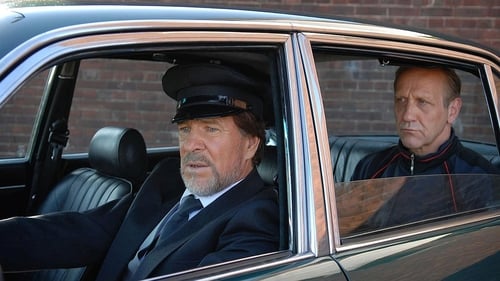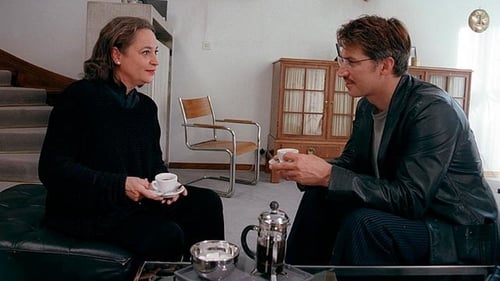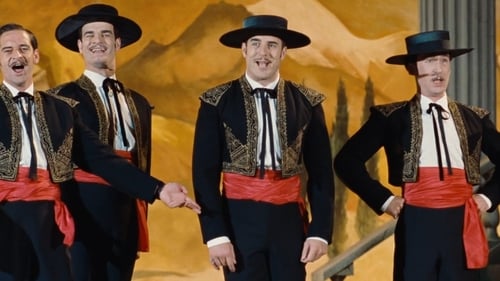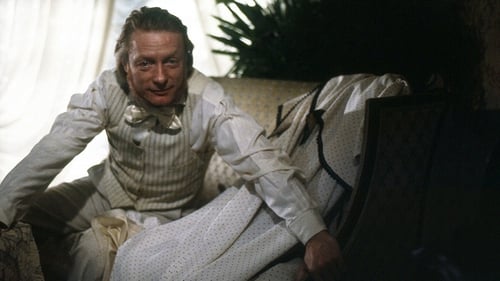Rudolf Wessely
Nascimento : 1925-01-19, Vienna, Austria
Morte : 2016-04-25

Willi Mattusch

Gott der Herr

Der Blinde

Erich Honecker

Nikolaus Kornmüller

Cymbeline, King of Britain

Viktor Meltzer

Berlim, 1927. Seis jovens ambiciosos unem suas forças para buscar uma visão criativa única. Com disciplina e trabalho duro, eles logo dominam um repertório que foca a música "A Cappella" com letras que vão desde o sentimental até o absolutamente tolo. Seu sucesso na Alemanha é ecoado por triunfos no exterior e gravações vendidas em todo o mundo. E suas vidas se transformam em uma grande festa, com todas as mulheres, carros e luxo que eles querem. Mas enquanto eles ignoram a política, a política não os ignora. Três dos seis Harmonists são judeus, e, portanto, inaceitáveis para os nazistas, que os forçam a dissolver o grupo. O que começou como uma das histórias de sucesso mais encantadoras dos "loucos anos vinte" é destruído por uma ideologia intolerante. Os nazistas põem fim aos cômicos Harmonists, mas não consegue silenciar suas vozes.

The Jewish antiques dealer Siegfried Rabinovicz is on his way from New York to Hamburg where he is about to testify as the principal witness in a murder case. During a stop-over, an airport hostess talks him into giving up his seat on the connecting flight to another passenger. While Rabinovicz is waiting in the VIP lounge, he gets into a conversation with a stranger who is remarkably well informed about the murder Rabinovicz is going to testify about.

Pfarrer
Sophie "inherits" her uncle's preserved whale and finds out that whoever sleeps in the whale's belly with her will be granted one wish, causing chaos and hatred in the village.

Professor Z. Arkof

Rudolf Pawlik
Situado num antigo subúrbio de Viena atravessada pela linha ferroviária local e cheio de casas delapidadas. Neste bairro, vive um homem velho e quando a sua vizinha morre e novos inquilinos se mudam para lá, a sua existência transforma-se.

Frisör

Mr. Nastupek, impresario
Based on the many observations made during his extremely interesting and far from dull life, Dr. Döblinger relates four episodes in which he wants to give us a picture of the loneliness and incomprehensibility of mankind.

Schnappauf
Wahnfried (German: Richard und Cosima, French: Richard et Cosima) is a 1986 West German-French drama film directed by Peter Patzak about the life of Richard Wagner. It was screened out of competition at the 1987 Cannes Film Festival.

Arnold Schönberg

Kubelka
A coming-of-age drama about an unhappy teenager who is repressed by his conservative and ambitious family

Armer Nachbar

Otto
Die Ausgesperrten revolves around an unlikely group of 4 youths in Vienna who band together, each for different reasons, to mug people. Two are fraternal twins, the third a blue-collar worker, the fourth the privileged daughter of wealthy parents who "needs a little dirt in her life". The story provides penetrating insights into the Austria of the 50s, in which some enjoyed the benefits of the "Economic Miracle", while others were shut out. It repeatedly references Austria's Nazi past and the numerous ways in which it influences the present despite the conspiracy of silence which surrounds it.

Professor Ruprecht
Kurt Gerber is attending his final class and gets into trouble with the math professor, a frustrated self-assured petty bourgeois sadist. The duel ends in catastrophe.

This two-part drama examines the fate of Haneke’s own generation which came of age after World War II. The first part depicts the generational gap between 1950s teenagers and their parents while the second shows this same group of characters twenty years later as they have grown up to be dysfunctional and suicidal adults. Regarded as the most significant of Haneke’s early works, Lemmings contains incipient treatments of many of the themes he would later elaborate on in his theatrical features.

Pointet
The true story of the Bavarian Tailor Albrecht Berblinger who, after a strange encounter with a balloon starts building a flying machine. Although not an engineer by profession, he never gives up. No matter how many obstacles are put in his way nor how many failures he endures, his ardour is never dampened. He continues with his dream to fly like a bird.

Wieland
1964 in Berlin, not long after the raise of the wall that separated the city: ex-prisoner Bruno is chosen by the eastern secret agency to be sent west with a special order. However as soon as he's crossed the border, he reports to the police. He claims his order was to kidnap someone, but he doesn't know who yet. He's forced to continue feignedly. However the east agents don't really trust him and play a double game...

Direktor
A schizophrenic patient is is wasting away in a mental institution, until a young doctor encourages him to write poetry. The resulting masterpieces are however not able to stop the man from suicide.

Asamer, Holzknecht
The bark-beetle has invaded the big forest of the general, just as a fatal illness has into the body of its owner. The general is suffering from eye cataract, preventing him from seeing the symptoms of the trees' decline, just as he is unable to see his own rottening. His wife and the writer discuss these circumstances for two scenes, until the general discovers the fact himself in the third one. Now he is going to take appropriate action.

Moritz Benedikt

Rosen

Schrekinger

Untersuchungskommissar

Don Alonso

Joxer Daly

Franz Seraph Tausend - Angeklagter

Bach

Dr. Wosnessensky

Sig

Bartleby

Famulus Kellner

Engineer Strebel′s apprentices think of nothing else but music and dancing, although they should really concentrate on their marks. Consequently, Strebel is anything but delighted with his pupil. To top it all, a TV show becomes interested in a performance by Strebel′s apprentices. To calm down their teacher, Jutta Fröhlich, who has already cast an eye on Strebel, makes him an offer: When they better their marks, Strebel would permit them to make a performance on television.

Franz Schmidt, writer














